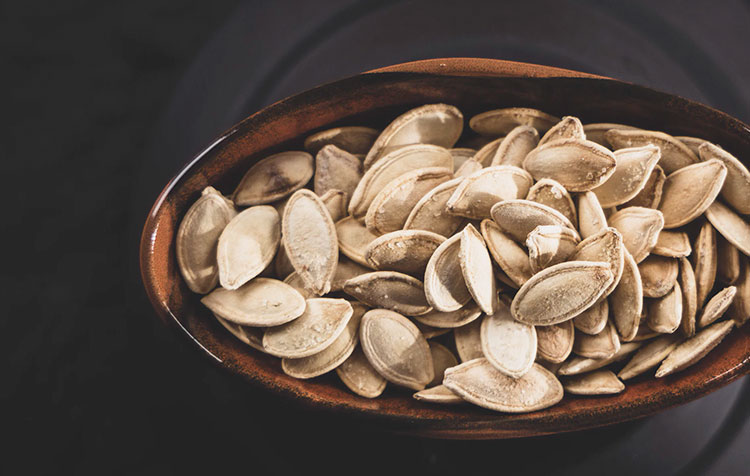Want to learn more about carbohydrates and fiber? Then you will definitely find what you are looking for here! Carbohydrates belong to the macronutrients and are mainly known as fuel for muscles and brain. But that's not all, of course!
I have compiled the most important basics in this article. We start with a short fact sheet on carbohydrates. Then we continue with basic information, the daily need, physiological importance of carbohydrates, as well as the best and healthiest sources of carbohydrates and what vegans and vegetarians should look for in the supply.
Here is in advance a short Table of contents for you:
Notice: This article is not a substitute for medical advice, but only provides general information about carbohydrates. Please consult your doctor if you feel unwell or want to prevent health problems with medical care.
Carbohydrates profile at a glance
Assignment: Macronutrients
Synonyms: Saccharides, colloquially also carbs
Important for: Energy supplier, building material for RNA, DNA, connective tissue substance or cell membrane
Daily requirement: approx. 45-60 % of calorie intake1,2
Overdose: not defined1,2
Deficiency symptoms: none, the body compensates through gluconeogenesis and ketogenesis
Food: Whole grains, root vegetables, pseudo cereals, legumes, fruit
Nutritional supplement: not necessary
Basics about carbohydrates
Carbohydrates consist of carbon, oxygen and water and are the primary energy source for our body. In the process, they can also participate in Proteins or Lipids be bound, which is why they then have the designations Glycoproteins or Glycolipids receive
Carbohydrates occur as monosaccharides, disacharides, oligosaccharides or polysaccharides. Monosaccharides have only one single molecule, whereas Disaccharides from two and Oligosaccharides consist of three to ten individual molecules. Also known as polysaccharides Polysaccharides consist of more than ten individual molecules. The fewer individual molecules a carbohydrate contains, the faster and easier it can be digested and provide the body with energy. Dietary fiber are classified as oligo- and polysaccharides and are therefore also carbohydrates.
Notice: Depending on whether you just need short- or long-term energy, either easily digestible monosaccharides or the more difficult-to-digest oligo- and polysaccharides can be useful.
High carb or low carb?

Recommendations regarding carbohydrate intake are far less precise than those for micronutrients, such as Vitamin E, Iodine or Magnesium. The optimal daily requirement of an individual depends strongly on how much energy one needs. Therefore, the leading nutrition societies give their intake recommendations as a percentage of the amount of calories supplied an.
The data provided by the European Food Safety Authority (EFSA) recommended range of carbohydrate intake is between 45 and 60 percent of calorie intake. It also sets a minimum of 25 grams of fiber per day.2 Here a Exampleto make the carbohydrate intake a little more concrete: With an average calorie requirement of 2,000 calories, this means that approximately 220-290 grams of carbohydrates should be eaten per day.
The German Society for Nutrition (DGE) recommends that more than 50 percent of calories should be covered by carbohydrates. Furthermore, the DGE has set the minimum intake of Dietary fiber defined. This is namely at least 30 grams per day.1
What do carbohydrates do in the body?
Carbohydrates are especially our primary energy source, which means that when they are available, the body uses them to produce energy. With 4.1 calories per gram, they are efficient energy suppliers. Should the body ever not need energy, the energy is converted into fat and stored.3
Furthermore, saccharides are an essential Building material for various substances in the body such as RNA, DNA, amino acids, connective tissue substance or cell membrane. They also serve for the Cell recognition.
The most important Carbs functions:
- Primary energy source
- Building material for RNA; DNA, bindingtissue substance or cell membrane
- Cell recognition
How many carbs are too many?
In general there are no fixed limit for the intake of carbohydrates. However, a sensible intake limit ultimately results from the Energy demand. In fact, those who regularly eat more carbohydrates than they need not only store fat, but also become more susceptible to diet-related diseases such as obesity, diabetes or high blood pressure. However, it also depends on whether good or bad carbohydrate sources are eaten. Increasing fiber intake, for example, can reduce the risk of obesity and hypertension in adults.4
How much is too much in an individual case cannot be answered in a generalized way. Most people feel relatively intuitively whether they are eating too much or too little. For all those who would like to know exactly, I recommend the individual Calculate calorie requirements and using a tracking app to measure and weigh how much they should eat once for a week. If you try this for a week, after the week you will already have a relatively accurate feeling for the amounts you want to eat.
Can there be a shortage?
How well are we Germans supplied with carbohydrates? Since the DGE differentiates between the intake of carbohydrates in general and dietary fiber, this was also done in the National Health Study II. On average, about 73 percent of men and 56 percent of women have the stated 50 % Carbohydrate content on the energy supply Not reached.5 Personally, I wouldn't consider that problematic at all right now, as long as the caloric intake is within a reasonable range.
At the Fiber intake things look quite different. This is because dietary fiber reduces the risk of cancer of the colon, rectum and stomach, as well as obesity and the resulting metabolic diseases. Dietary fiber also helps with constipation because it stimulates bowel activity. However, the recommended amount of 30 grams per day is not consumed by 75 percent of men and 66 percent of women. Not reached.5
The body can cleverly compensate for a lack of carbohydrates. If too few carbohydrates are supplied, the body obtains energy from the breakdown of glucose from the liver and muscles, as well as gluconeogenesis and ketogenesis.
Good carbs, bad carbs?

When selecting sources of carbohydrates, it is less important that they are high in content than that they are beneficial to overall health. The basic principle should be: Unprocessed instead of processed carbohydrates. If you stick to this principle, you will increase the value of your carbohydrate supply and nutrition in general.
Bad carbohydrates contain mainly sugar and white flour. These are, for example, sugary drinks, ice cream, canned fruit, sweets, white rice, sugared breakfast cereals, most baked goods and cakes.
Good carbohydrates are Fruit, Legumes, root vegetables, whole grains and pseudo cereals. Here you should mainly decide according to your taste and try to include as many food groups as possible in your wholefood diet to integrate. With these good carbohydrate sources you can cover half of your calories with a clear conscience.6
Tip: When it comes to beverages, the switch is especially helpful. Once you wean yourself off the taste of sugar and get used to water and natural teas, you'll save yourself some unnecessary calories, flavor enhancers and unnecessary sugar.
What about carbs for vegans?
In the vegan diet, sufficient carbohydrates can be supplied. Therefore, carbohydrates are consequently excluded by the DGE. not as potentially critical nutrient mentioned.7 In fact, vegans, unlike mixed foodists and vegetarians, easily exceed the recommended minimum fiber intake of 30 g per day. In fact, they consume up to 58 g of the health-promoting dietary fiber daily.8
Are there reasons to supplement carbohydrates?
Adding carbohydrates as a dietary supplement is not recommended for health reasons. not necessary. Only for bodybuilders it may be useful to use so-called weight gainers to meet the greatly increased calorie requirements.
Carb FAQ: The most frequently asked questions
Where are the most carbohydrates?
Whole grain products and pseudocereals are particularly high in carbohydrates.
Which carbohydrates are particularly good for weight loss?
Carbohydrate sources with a high fiber content are particularly suitable for losing weight. These are, for example, legumes or root vegetables.
What are good and what are bad carbohydrates?
Good carbohydrates are whole foods, such as fruits, legumes, whole grains or root vegetables. Bad carbohydrates are all processed foods that contain sugar or white flour.
What do humans need carbohydrates for?
The main function of carbohydrates is to provide energy. They are also used as building materials for various substances in the body.
What can I eat in the evening if I want to lose weight?
In fact, it may be wise to reduce carbohydrate intake in the evening and eat more protein, fats and low-calorie foods, such as salad.
Conscious diet with healthy carbohydrates
Just like the Fat it's the quality of the food that matters most - and less the quantity. Healthy sources of carbohydrates are whole grains, pseudo cereals, legumes, fruits and root vegetables. You should consciously include these in your diet and reduce unhealthy carbs, such as sugary drinks, ice cream or baked goods containing white flour.
For your holistic healththere's a lot more you can do. Much of it is even free, such as cold to showers, Spend more time in the fresh air and also to meditate.
Good luck with the implementation. For questions, criticism and remarks, you can use the comment function!
All the best,

P.S.: Our Nutrient database is now full to bursting. There you will find further contributions, for example on Vitamin A, Calcium or Biotin. And if you are interested in holistic health, feel free to also check out the article "Tips for more energy in everyday life". Have fun!
References:
1 Deutsche Gesellschaft für Ernährung e. V.: Carbohydrates, Dietary Fiber, https://www.dge.de/wissenschaft/referenzwerte/kohlenhydrate-ballaststoffe/?L=0. [09.11.2021]
2 European Food Safety Authority: Scientific Opinion on Dietary reference values for carbohydrates and fiber, https://efsa.onlinelibrary.wiley.com/doi/pdf/10.2903/j.efsa.2010.1462 [05.11.2021].
3 Zentrum der Gesundheit: Carbohydrates: Healthy, but also harmful, https://www.zentrum-der-gesundheit.de/ernaehrung/naehrstoffe/kohlenhydrate-uebersicht/kohlenhydrate [08.11.2021]
4 Deutsche Gesellschaft für Ernährung e. V.: Guideline Carbohydrates compact. Carbohydrate intake and prevention of selected diet-related diseases, https://www.dge-medienservice.de/media/productattach/d/g/dge_leitlinie_kh_kompakt_.pdf, [08.11.2021].
5 Max Rubner Institute. J. Möhring, H. F. Erbersdobler (2008). National consumption study II - Results report part 2. In: Lebensmittel-Warenkunde Für Einsteiger, (Springer), pp. 121-146. Online: https://www.mri.bund.de/de/institute/ernaehrungsverhalten/forschungsprojekte/nvsii/erg-verzehr-naehrstoffe, [08.11.2021].
6 Center of Health: So much fat and carbs are healthy, https://www.zentrum-der-gesundheit.de/news/ernaehrung-news/allgemein-ernaehrung/fett-und-kohlenhydrate-menge-190905109 [08.11.2021]
7 Deutsche Gesellschaft für Ernährung e. V.: Supplement to the position of the German Nutrition Society with regard to population groups with special nutritional needs, https://www.dge.de/wissenschaft/weitere-publikationen/dge-position/vegane-ernaehrung/?L=0 [05.11.2021].
8 Waldmann, A., Koschizke, J. W., Leitzmann, C., and Hahn, A. (2005): Dietary intakes and blood concentrations of antioxidant vitamins in German vegans. Int J Vitam Nutr Res 75, 28-36. [05.11.2021]






